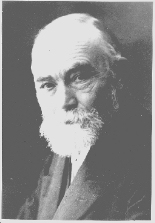Click here and press the right key for the next slide (or swipe left)
also ...
Press the left key to go backwards (or swipe right)
Press n to toggle whether notes are shown (or add '?notes' to the url before the #)
Press m or double tap to slide thumbnails (menu)
Press ? at any time to show the keyboard shortcuts
Sense and Knowledge of Reference
sense
ftbe:
This utterance of ‘Charly is Charly’
was less informative than
that utterance of ‘Charly is Samantha’.
Why?
There is an aspect of meaning which explains why ⬆.
Call it ‘sense’.
knowledge of reference
ftbe:
Communicators can know, sometimes,
whether they are understanding.
How?
ftbe:
Utterers make rational, voluntary use of some regularites
while merely conforming to others.
How is this possible?
Schematic explanation:
There is a mental state of the utterer in virtue of which her utterance refers to ‘Earth’.
Call this mental state ‘knowledge of reference’.
The sense of an utterance of a word (or phrase)
is what you know when you
have knowledge of reference.
The sense of an utterance of a word (or phrase)
is what you know when you
have knowledge of reference.

‘Frege’s idea was that to understand an expression, one must not merely think of the reference that it is the reference, but that one must, in so thinking, think of the reference in a particular way.
The way in which one must think of the reference of an expression in order to understand it is that expression’s sense’
Evans, 1981 [1985]: 294
The sense of an utterance of a word (or phrase)
is what you know when you
have knowledge of reference.
What is sense supposed to do?
1. Sense explains the difference in informativeness between the utterance of ‘Charly is Charly’ and ‘Charly is Samantha’.
2. Sense determines reference.
3. A statement showing the sense of a name specifies what you need to know about the utterance of a name in order to understand it.
The sense of an utterance of a word (or phrase)
is what you know when you
have knowledge of reference.
Q1What is sense?
That is, what do you know when you understand
the utterance of a word or phrase?
Q2Which mental state is knowledge of reference?